
The second meeting of the G20-Chief Science Adviser’s Roundtable (G20-CSAR), held under the Sherpa Track of the Indian G20 Presidency, successfully concluded today in Gandhinagar, Gujarat. The summit culminated into mutual consensus for an Outcome Document and a Chair’s Summary by all G20 countries and invitee countries.
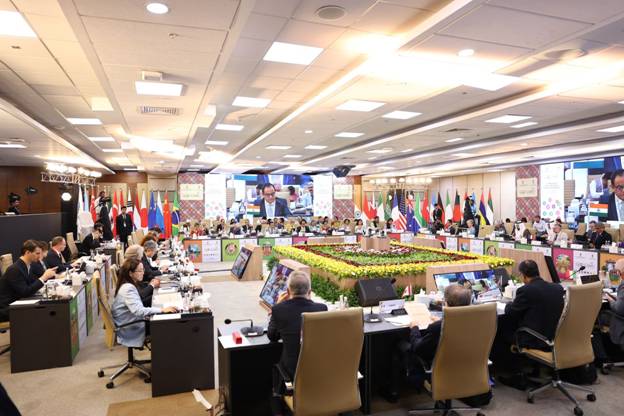
G20-CSAR is an attempt towards synergizing global science advice mechanism in an inclusive and action-oriented manner to enable evidence-informed policymaking, as well as strengthening science advice at national and international levels.
The key priorities areas that were discussed during the day-long deliberations were (a) leveraging opportunities in One Health, for better disease prevention, control, and pandemic preparedness; (b) synergizing global efforts to expand access to scholarly scientific knowledge; (c) ensuring equity, diversity, inclusion, and accessibility in Science and Technology Ecosystem, as well as known and unknown emerging priorities; (d) and creating an Inclusive, Continuous and Action-Oriented Global Science Advice Mechanism.
The G20-CSAR meeting witnessed proactive engagements from representatives belonging to G20 member countries, invitee countries, and two international organisations; namely WHO and UNESCO. The meeting was led by Principal Scientific Adviser (PSA) to the Government of India Professor Ajay Kumar Sood who appreciated the commitment fostered by the G20 nations and invitee countries to deliberate on the ways to shape the G20-CSAR initiative as a sustained mechanism.
Addressing the G20-CSAR meeting, Prof. Sood said, “This initiative is based on the core principles of creating an inclusive and robust global science advice mechanism that would collectively benefit everyone equitably and reflect our shared vision. It is heartening to note the overwhelming support from national and international stakeholders for this initiative.”
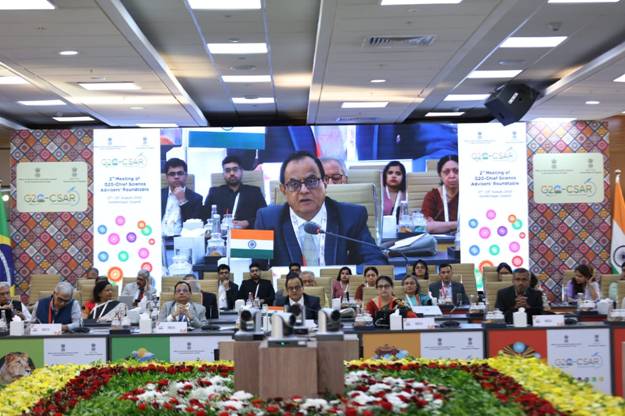
Under the theme ‘Leveraging opportunities in One Health, for better disease prevention, control, and pandemic preparedness’, the G20 countries established the importance of addressing the interdependent health threats to human, animal, plant, and environment collectively through the One Health approach. The countries also emphasised the need for exploring virtual spaces for collaborations and capacity development for knowledge and technologies related to disease control. Connections and continued engagements between ‘One Health Institutes’ for facilitating collaboration in this space were also recommended.
Under the theme ‘Synergising global efforts to expand access to scholarly scientific knowledge’, the G20 countries deliberated on the need to enable immediate and universal access to appropriate publicly funded scholarly scientific knowledge to communities within and beyond G20 members. The importance of evolving approaches to offer immediate and free access to publicly funded research publications was acknowledged.
Under the theme ‘Diversity, Equity, Inclusion, and Accessibility (DEI&A) in Science and Technology Ecosystem’, the G20 nations acknowledged the contribution of traditional and indigenous knowledge systems and recommended that these systems be considered with contemporary science to foster evidence-based innovations that are culturally inspired and locally relevant. The importance of recognizing the plurality of languages and knowledge systems in inclusion-related policy discourse was emphasised.
Discussing the way forward in the fourth theme ‘Creating an inclusive, continuous, and action-oriented Global Science Advice mechanism’, the G20 countries unanimously decided to work towards creating a robust, relevant, and effective mechanism for sustained engagement, bringing together the chief science advisers and their nominated equivalents to deliberate on contemporary issues demanding effective global science advice, and aiming to address existing knowledge asymmetries for equitable global societal benefit.
The G20 countries aim to use the G20-CSAR platform to pave the way for further discussions and deliberations wherein members and international organisations could converge on multidisciplinary issues, impart synergistic science advice and use Science Diplomacy to enhance synergies between various stakeholders.
The G20-CSAR initiative, newly launched under the Indian Presidency, aims to create a space for voluntary knowledge and resource sharing. The goal is to exchange best practices in the science advice process based upon inclusivity, heterogeneity, interdependency, transparency, plurality of expertise, and collective interest.
The inaugural G20-CSAR meeting was held from 28th-30th March, 2023 in Ramnagar, Uttarakhand. Since then, four intersessional meetings, six side events and several bilateral meetings have been organised to arrive at the agreement on the Outcome Document and Chair’s Summary.
The baton was passed on to Brazil to take the G20-CSAR initiative forward.
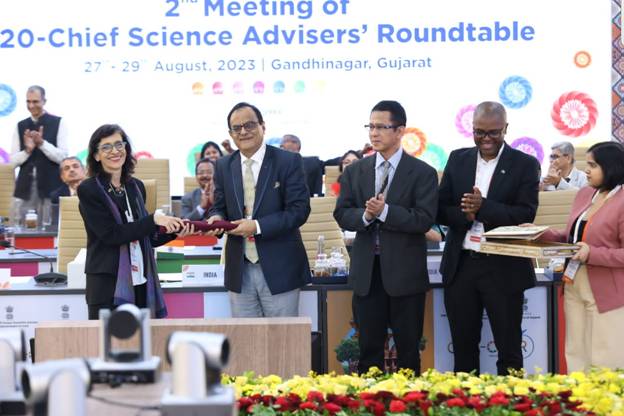
Here is the link to the Outcome Document and Chair’s Summary: https://www.g20.org/content/dam/
Here is the link to the Post-Event Press Conference: https://youtube.com/live/x0DJJ53iuHs?feature=share



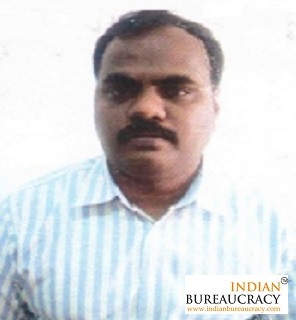
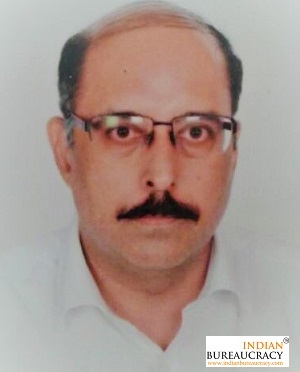
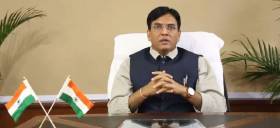

Leave a Reply
You must be logged in to post a comment.